
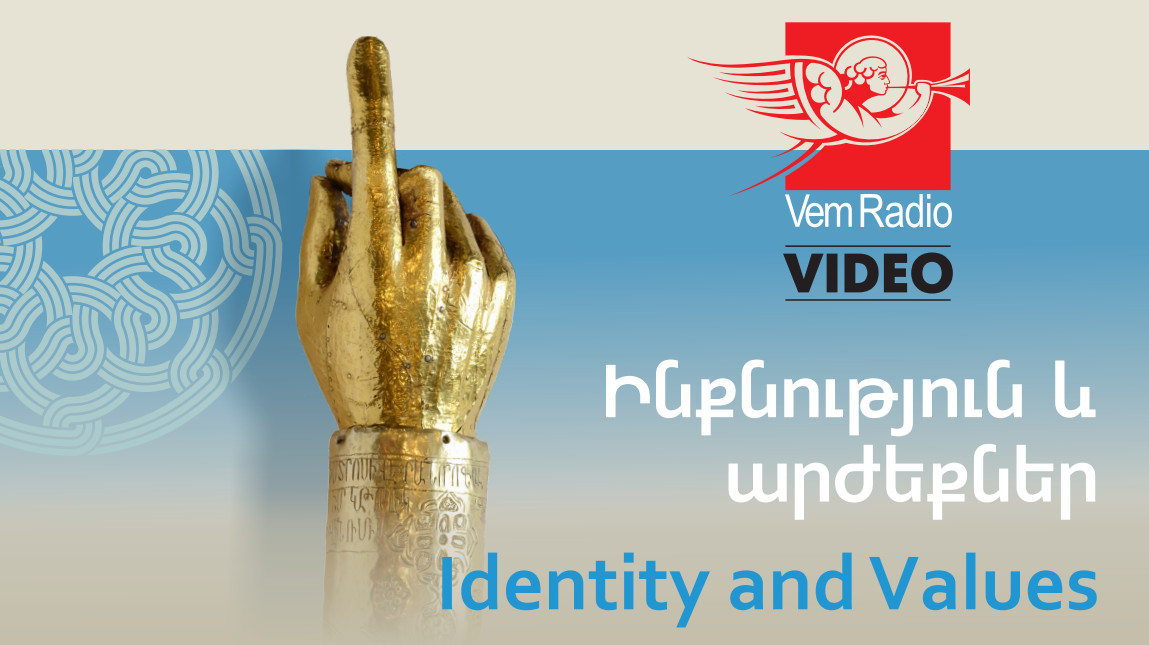
Identity and Values, Discussion Series
The program is about worldview issues. The main topics include personal and collective identity, epistemology, and axiology. The purpose of the program is to promote conceptual thinking, shape community-building culture, and spread the dialogue about values in Armenia and the Diaspora.
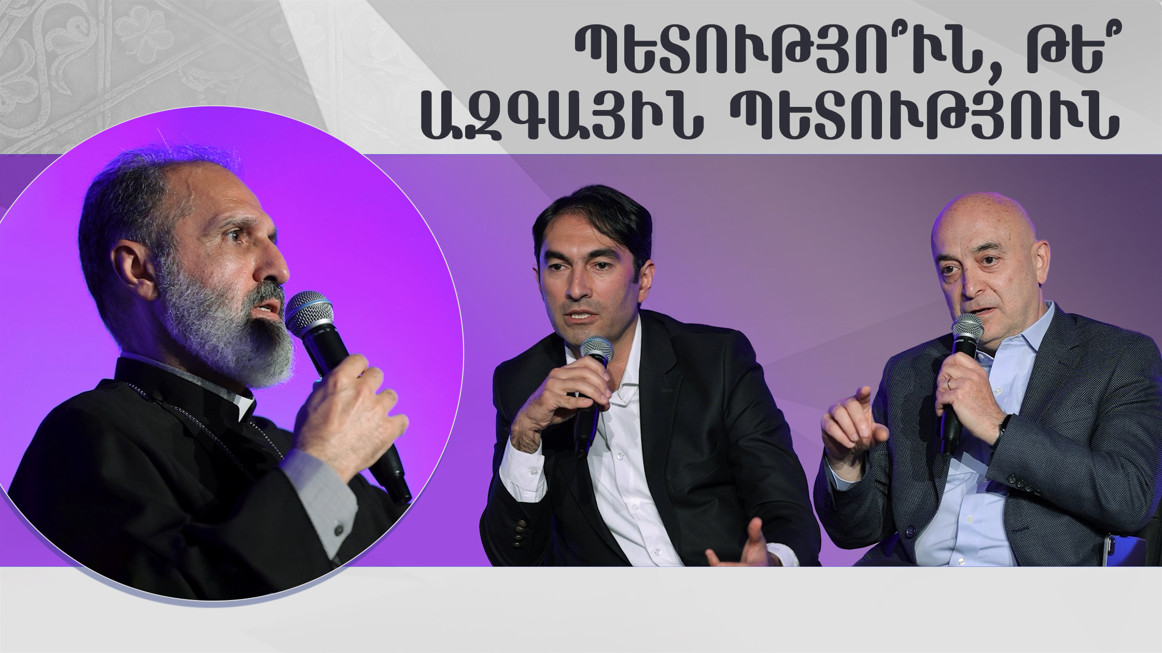
State or National State?
The nation as a collective consciousness, responsibility, and loyalty. National sacred things, symbols, and values. The role of religion in national life. The commandment of brotherly love as the basis of national life. Our vision and mission. The price and responsibility of having a sovereign state.
- Speakers: Artur Atanesyan, Vasken Yakoubian
- Host: Fr. Mesrop Aramian
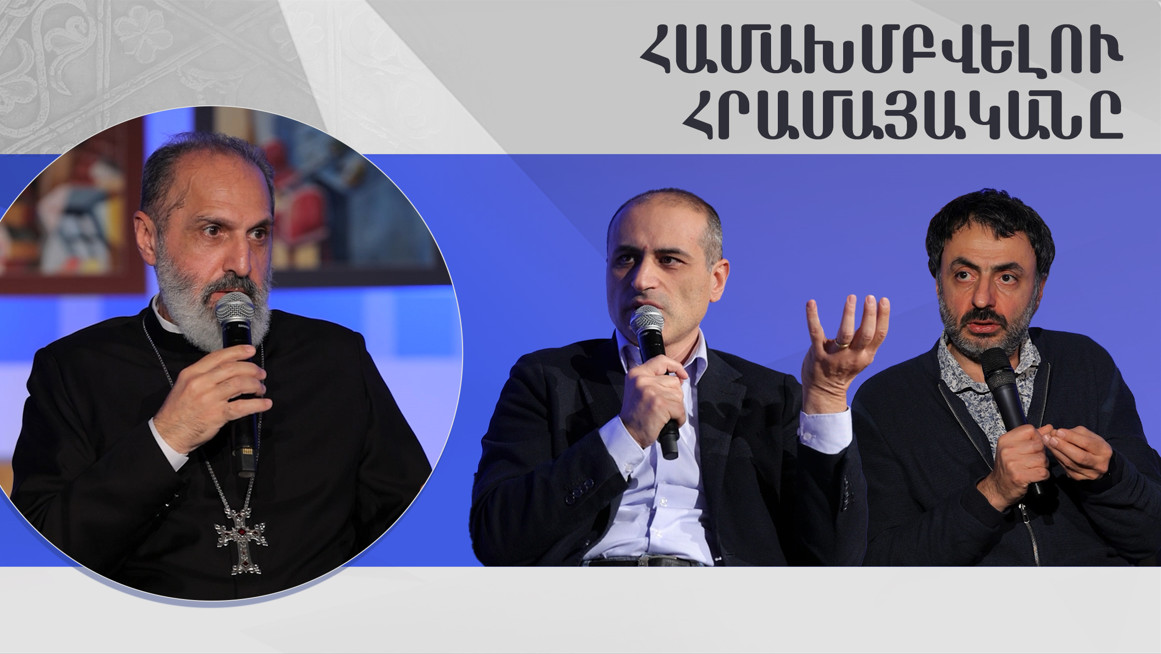
The Imperative for Consolidation
The discussion focuses on the importance of national consolidation in these challenging times. At the same time, special attention is given to the question of around which ideas and around whom it is worth consolidating.
- Speakers: Aram Pakhchanyan, Manuk Hergnyan
- Moderator: Fr. Mesrop Aramian

Transhumanism
The challenges humanity faces in the era of rapid advancements in artificial intelligence and synthetic biology. There is growing concern that we are approaching the threshold of uncontrollable events—be it an AI uprising, programmed self-destruction, or the loss of any possibility for reversal. Transhumanist ideologues are discussing the prospects of fundamentally transforming or even replacing humanity. Are these terrifying predictions inevitable, or can humanity control the development of technologies?
- Speakers: Aram Pakhchanyan, Kharen Musaelian
- Host: Fr. Mesrop Aramian
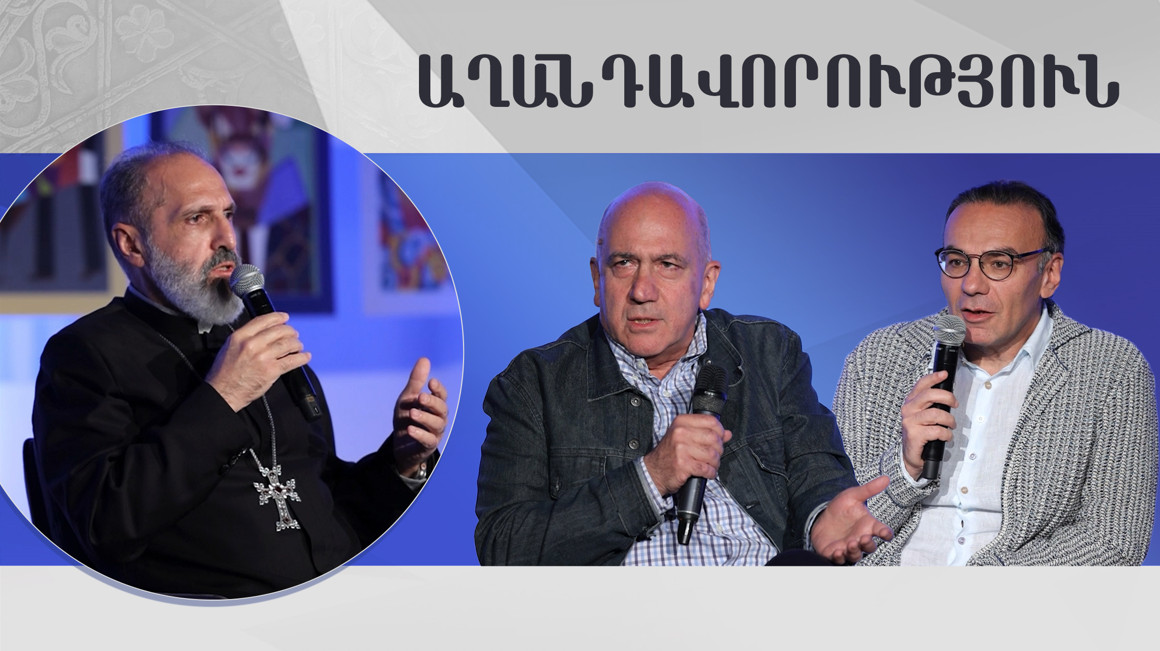
Sectarianism: Spiritual, Cultural, and Political
What is sectarianism, and how does it influence human thinking, emotions, worldview, and relationships? How do sectarian lures and manipulations operate, and who are their vulnerable targets? What happens to us when the fundamental concepts and sacred things that unite us are distorted and devalued?
- Speakers: Arsen Gasparyan, Aram Abrahamyan
- Moderator: Fr. Mesrop Aramian
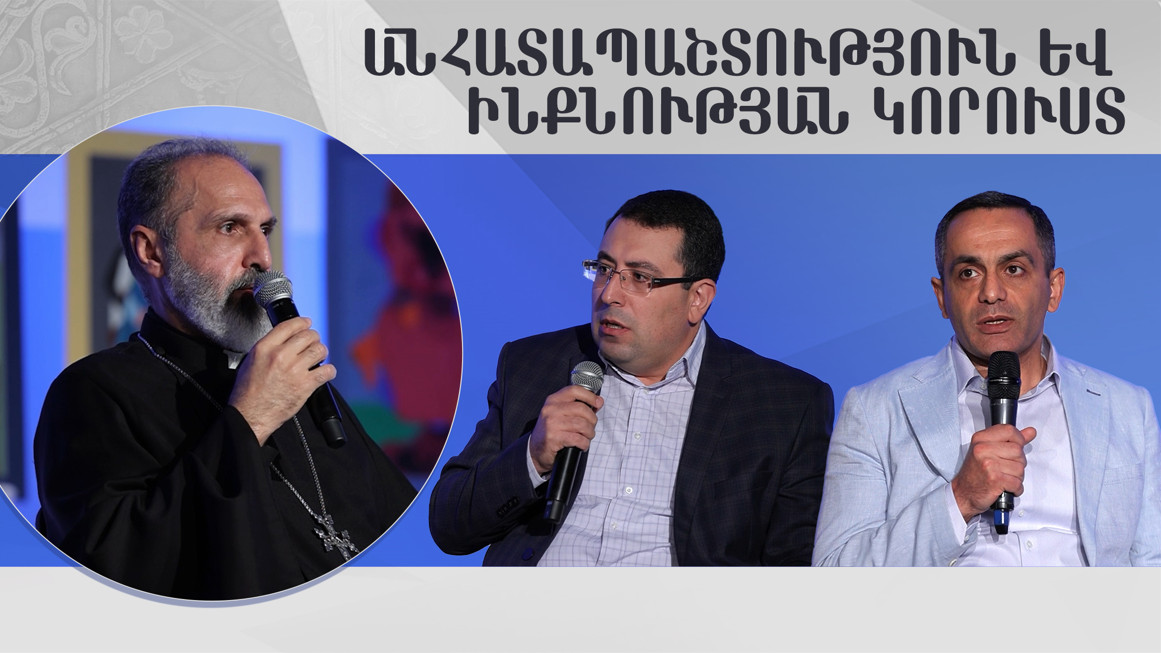
Individualism and Loss of Identity
Individualism is considered one of the defining features of modern societies, and the reasons for its emergence are multifaceted, encompassing spiritual, psychological, social, and civilizational factors.
As an ideology prioritizing personal interest, individualism is often opposed to collective values and identity, contributing to the deepening of the crisis of meaning in the modern world.
- Speakers: Armen Sargsyan, Hakob Madoyan
- Moderator: Fr. Mesrop Aramian
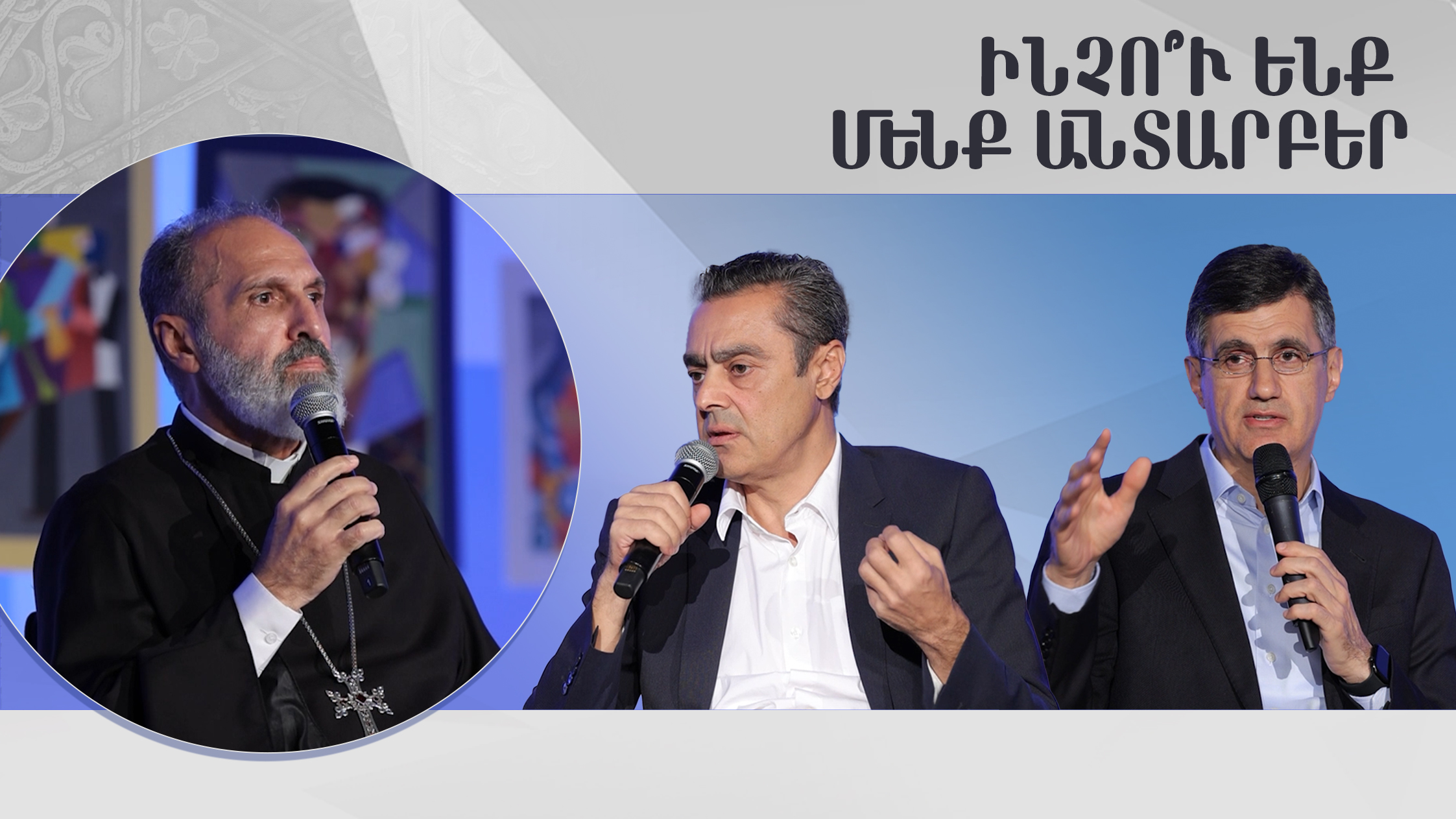
Why Are We Indifferent?
Indifference is one of the most characteristic phenomena of the moral mess of the modern world. Armenia is not only affected by these global value crises but also has its own causes that feed indifference—the Artsakh war, loss of homeland, victims, and captives. What are the deep-rooted causes of Armenian indifference, and how can they be overcome? These questions are at the center of the discussion.
- Speakers: Ralph Yirikian and Artur Alaverdyan
- Moderator: Fr. Mesrop Aramian
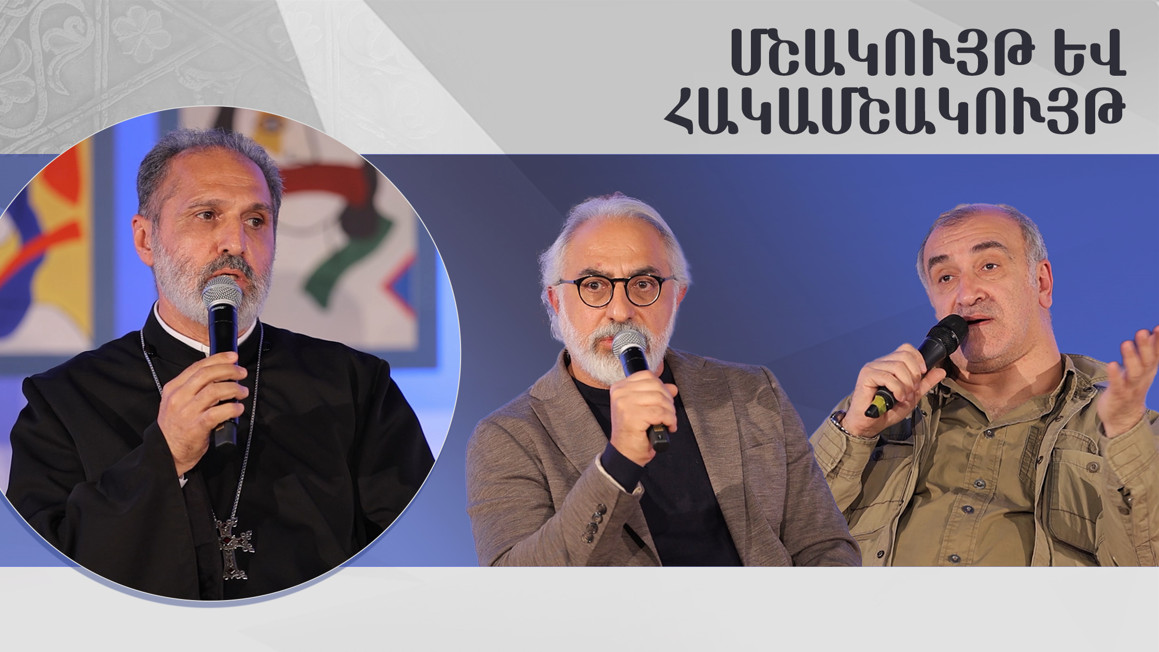
Culture and Anti-culture
Culture as a living environment or system of thought, work, good, and ideals. The cognitive and moral axioms of culture, and the paradigms derived from them. The role of culture versus the crisis of meaning and purpose. The society of the lonely and the disconnected. Culture in the age of artificial intelligence. How the emerging culture solves the problem of the accessibility of the truth and moral ideals.
Speakers: Edgar Baghdasaryan, Aram Mehrabyan
Host: Fr. Mesrop Aramian
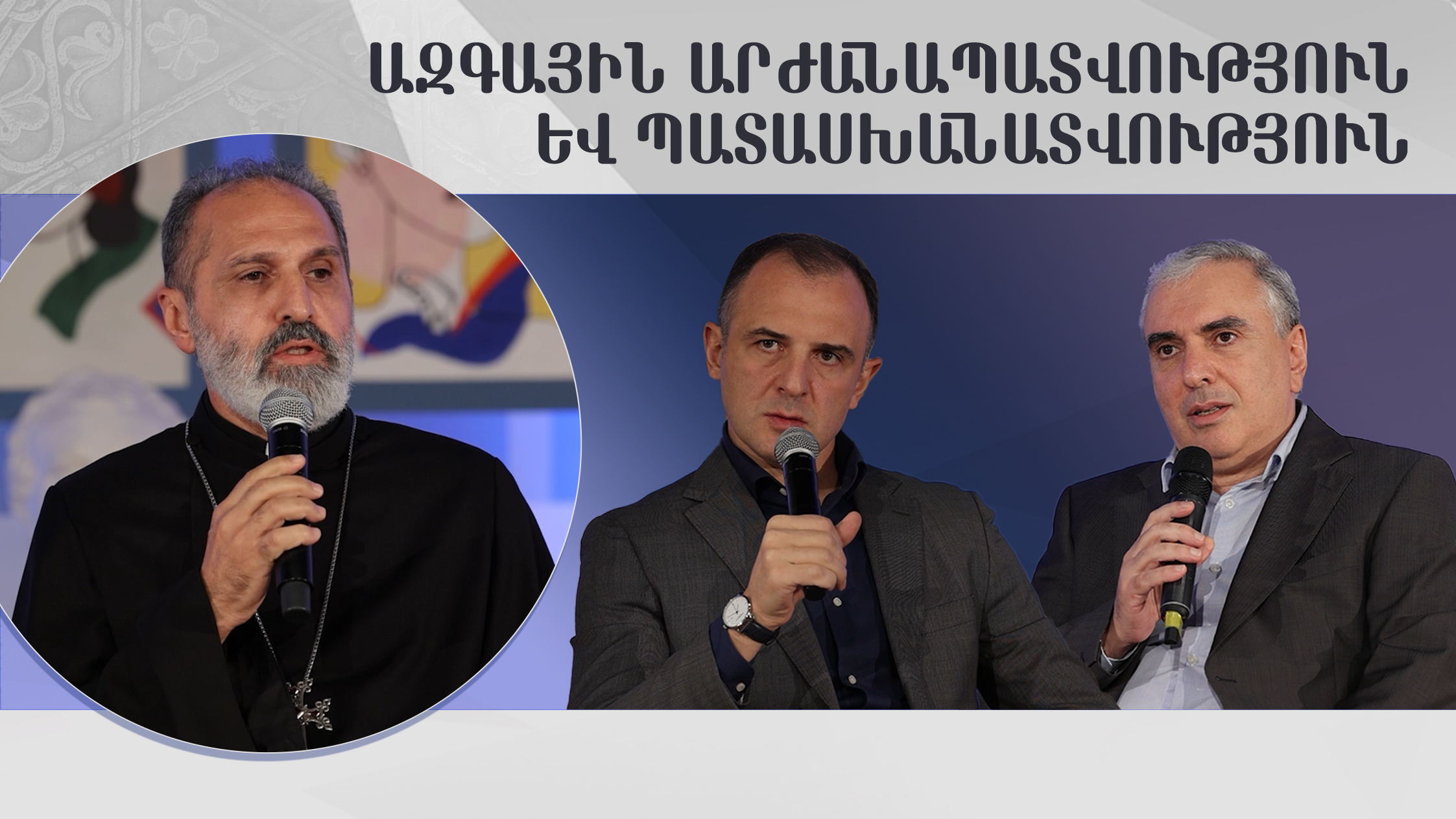
National Dignity and Responsibility
National dignity as the basis and strength of identity. How to stand up and rally. State as a moral responsibility. What do we expect from the state if we have exempted ourselves from the responsibility of an owner? Our unresolved problems and unreasonable expectations. Why do we run away from reality and from facing the truth?
- Speakers: Arthur Mkrtchyan, Vahram Ter-Matevosyan
- Moderator: Fr. Mesrop Aramian
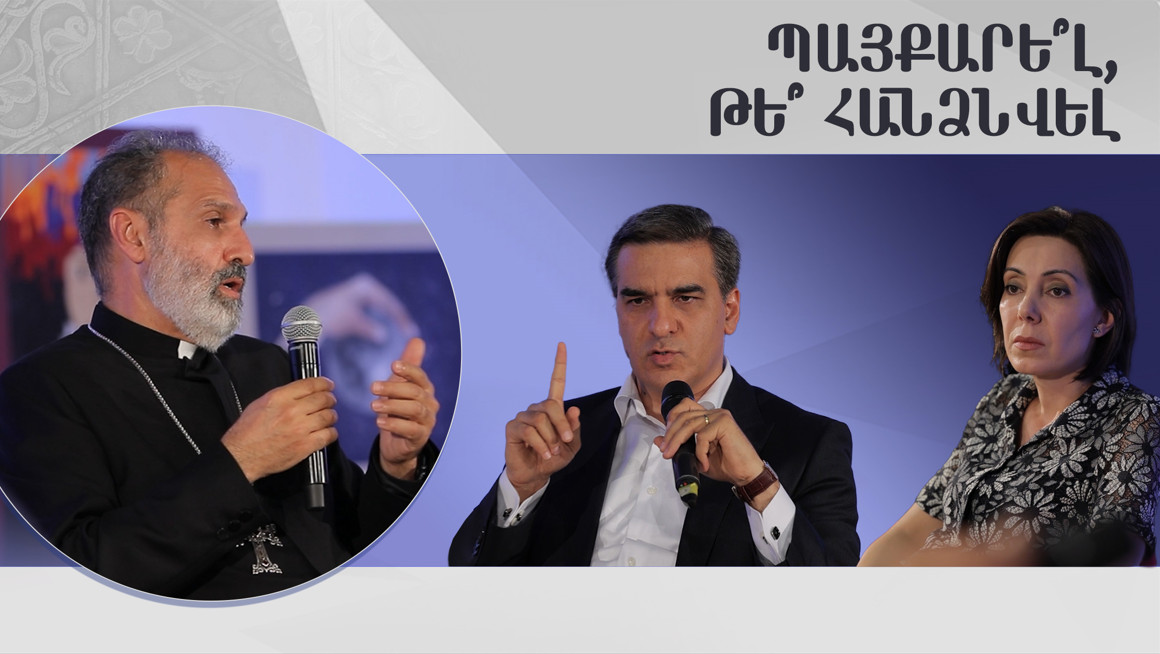
To Fight or to Surrender?
Life is a struggle. But how, how much, and for what should we fight?
We examine struggle in the context of the hierarchy of values. Who is our enemy and who is our friend?
- Moderator: Fr. Mesrop Aramyan
- Guests: Marina Mkhitaryan, Arman Tatoyan
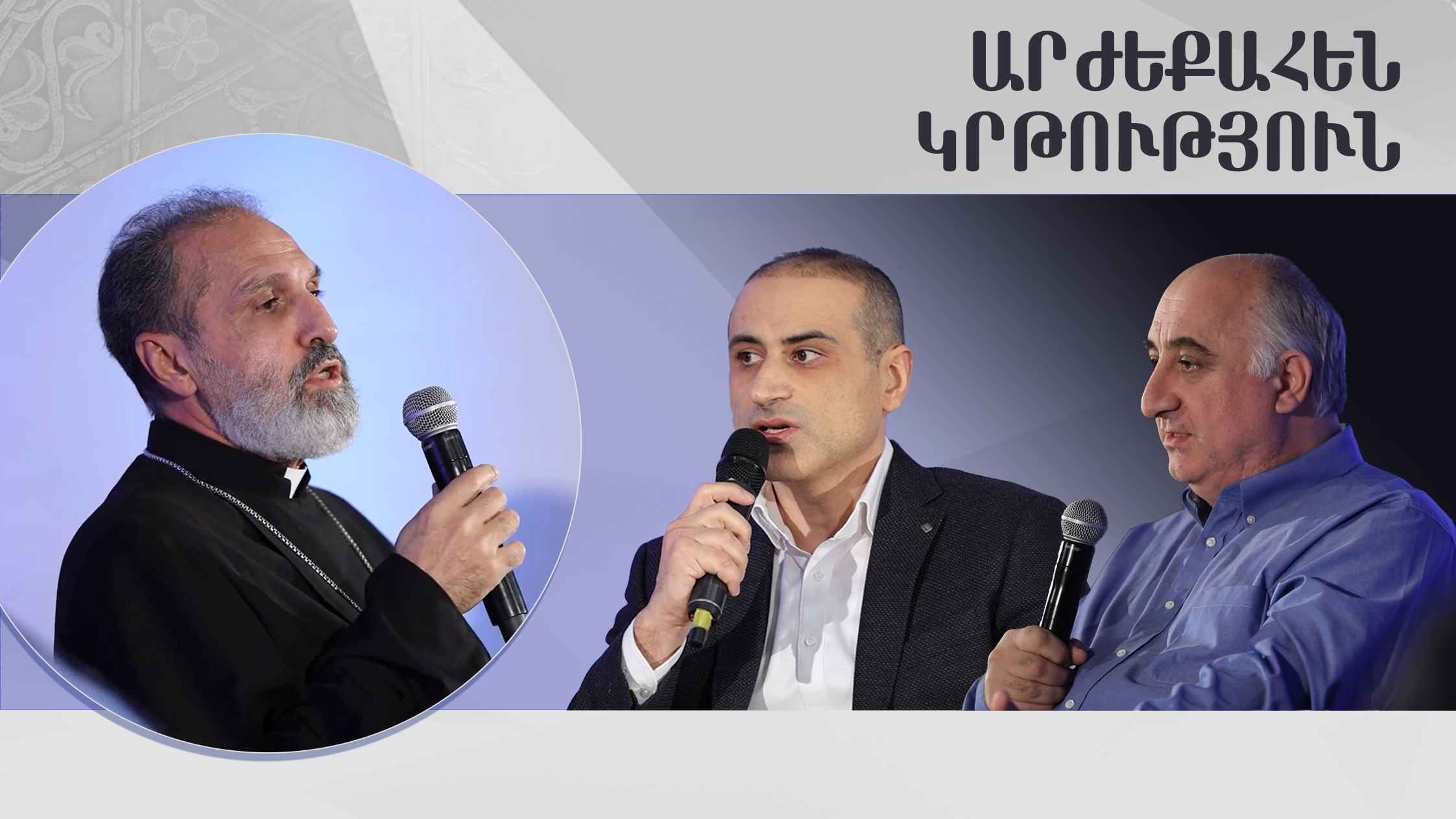
Values-Based Education
If the mission of education is to shape the human being, then what is our ideal model of a person? Are our educational system and teachers prepared for this mission? Is there a public demand for the formation of values through education? How can values be planted and nurtured? What examples of values-based education exist today—both in the world and in our country?
- Speakers: Serob Khachatryan, Manuk Hergnyan
- Moderator: Fr. Mesrop Aramian
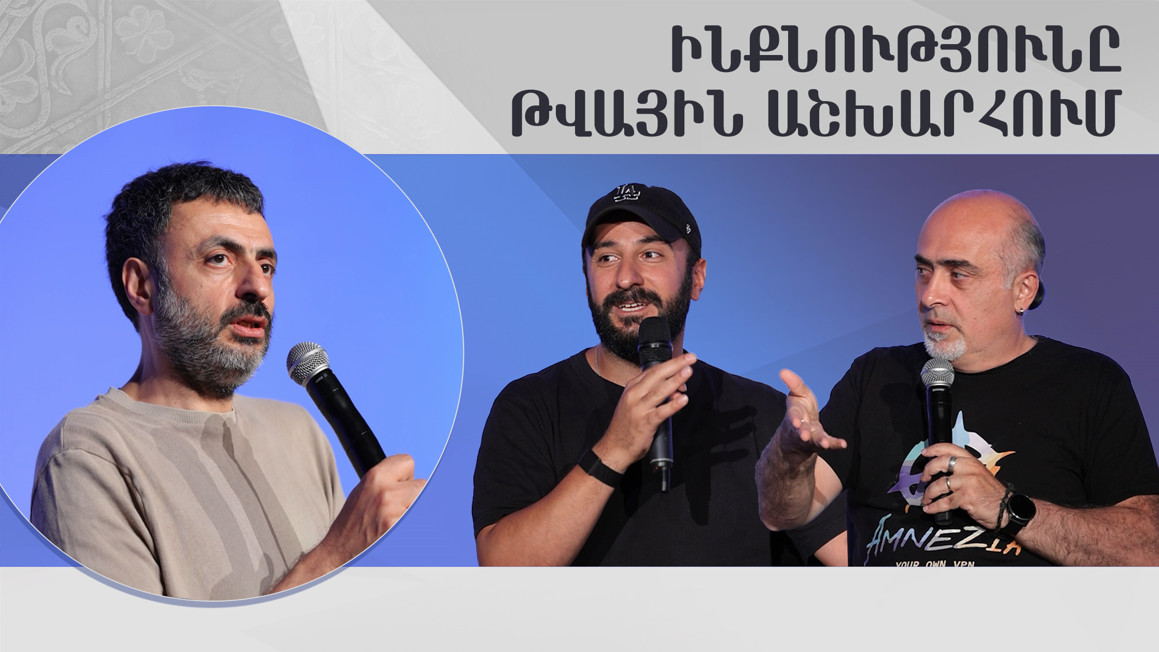
Identity in the Digital World
Degrees of understanding the issue of self-knowledge from the ancient world up to today: can digital technologies reshape our identity?
- Moderator: Aram Pakhchanyan
- Guests: Narek Amirkhanyan, Samvel Martirosyan
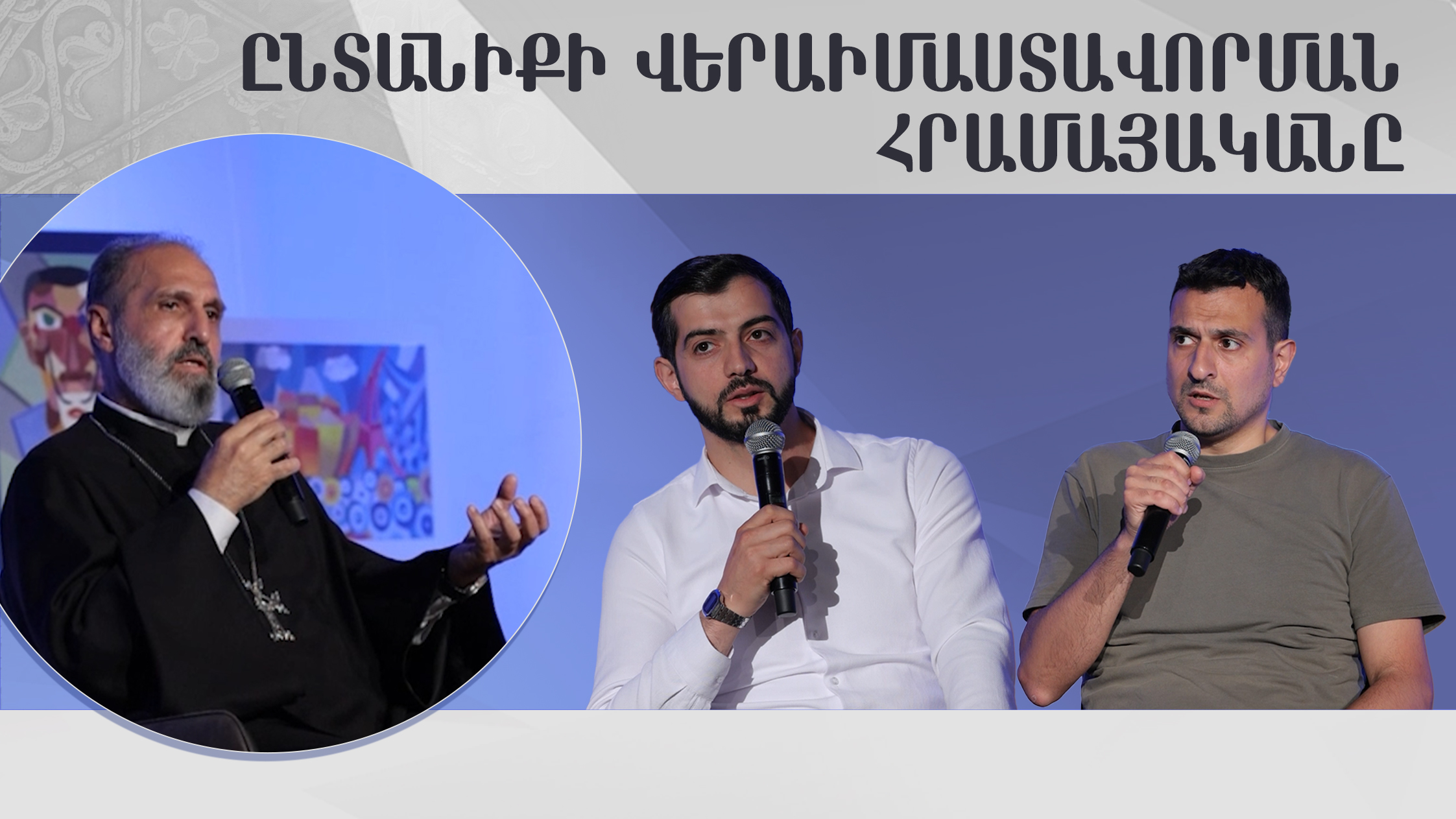
Imperative of Rethinking the Family
Armenians consider family to be one of the greatest values. However, is the Armenian family model meaningful and secure today, when the institution of the family in the world is undergoing dangerous upheavals? Why is the number of divorces increasing and the birth rate decreasing in Armenia? The need for national attention and immediate action is obvious.
- Speakers: Armen Khachikyan, Mikayel Malkhasyan
- Host: Fr. Mesrop Aramian
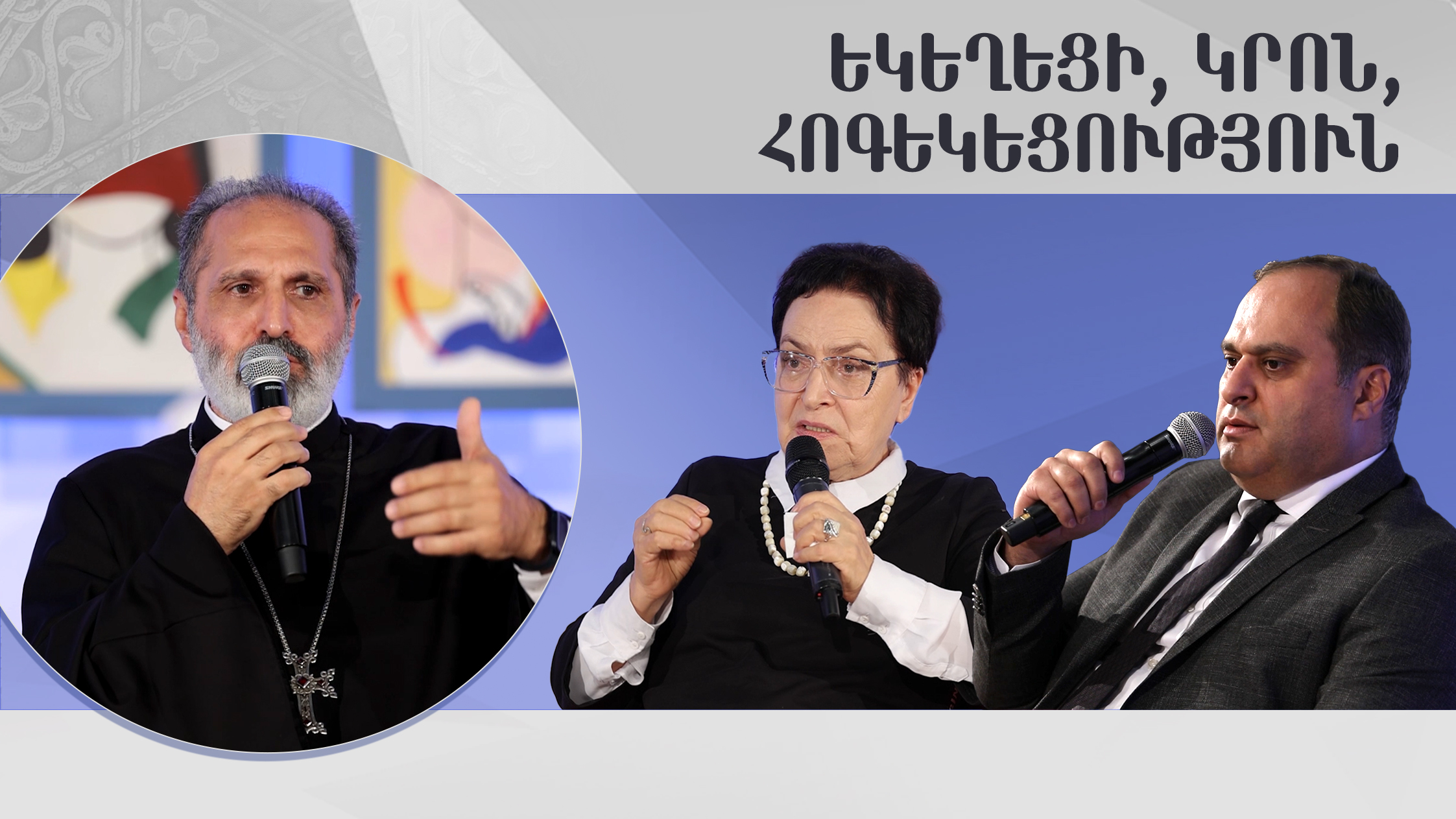
Church, Religion, Spirituality
The role and service of the Church in the life of Armenians. What do we expect from the Church, and what does the Church expect from us? Religion as a spiritual system and moral basis of culture. Where do the moral commandments come from? How to avoid egoistic perceptions of the spiritual?
- Speakers: Larisa Alaverdyan, Ara Zohrabyan
- Host: Fr. Mesrop Aramian
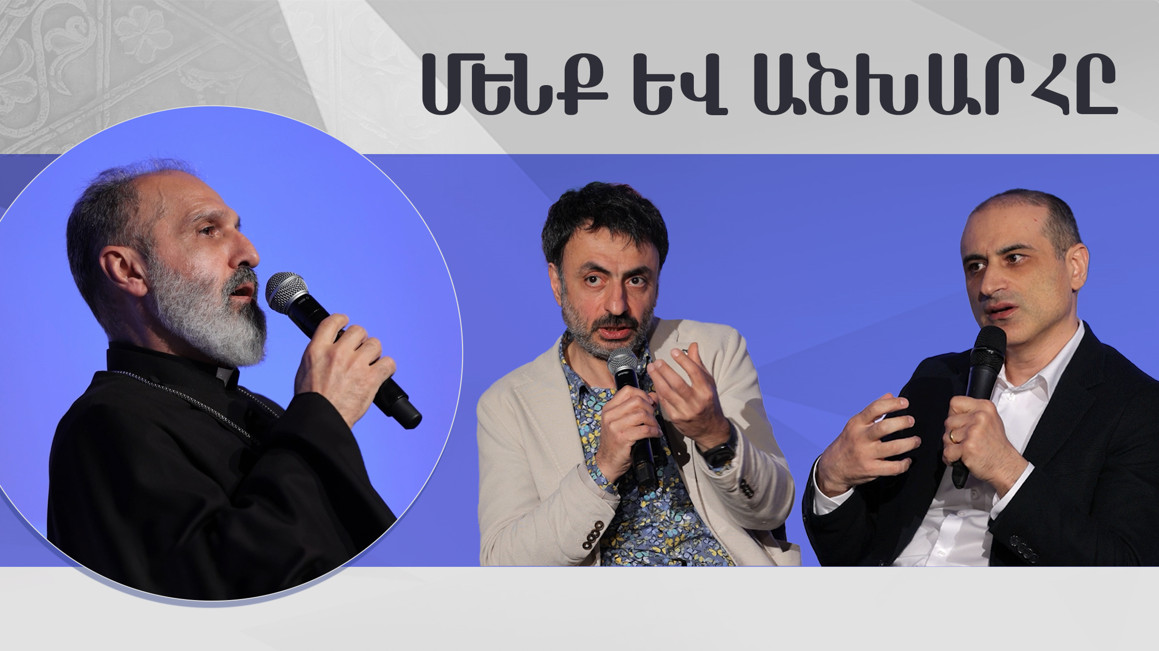
We and the World
In the midst of the ideological confusion and geopolitical upheavals of the modern world, the task of seeing, finding, and preserving ourselves becomes an existential imperative. What is the essence, domain, and potential of our identity, and how viable is it in the face of contemporary challenges and changes? In a world full of dangers and challenges, are we passive observers or active participants? Are we ready to change? What should we change, and how?
- Speakers: Aram Pakhchanian, Manuk Hergnyan
- Host: Fr. Mesrop Aramian
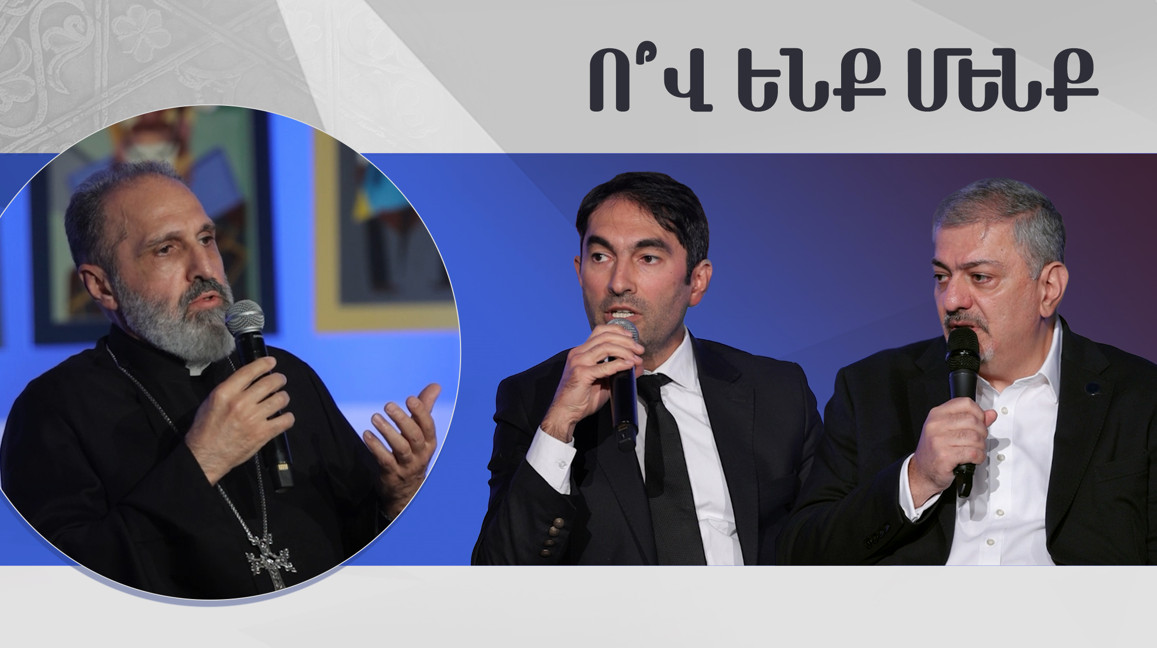
Who We Are: Purpose and Mission
Identity is a process of meaning-making. In the midst of the semantic crisis and value chaos that dominate the modern world, we need to meaningfully examine our past and present to uncover the existential values and spiritual foundations that unite us and open perspectives for the future. However, to move forward, we must understand our purpose, vision, and mission—or clarify where we are going, why, and how—so that our definition of identity becomes complete and unifying, inspiring, and future-oriented.
- Speakers: Vatche Gabrielyan, Artur Atanesyan
- Host: Fr. Mesrop Aramian
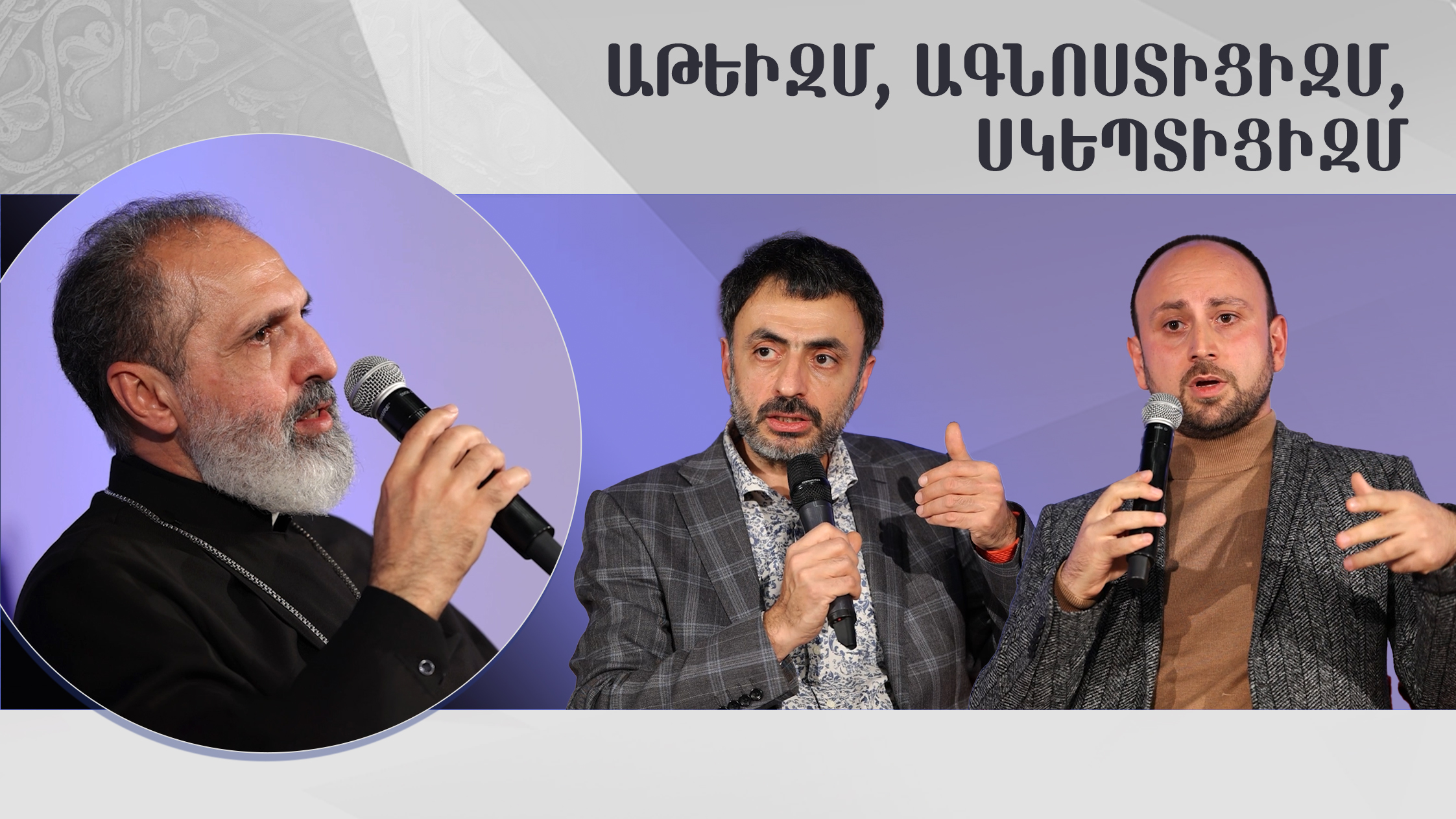
Atheism, Agnosticism, Skepticism
Is an atheistic worldview complete, consistent, and self-sufficient? Can science prove or disprove the existence of God? Is there a contradiction between faith and science? How well are we protected against manipulations of consciousness, and do we have the ability to verify the credibility of our own opinions?
- Speakers: Vardan Aslanyan, Aram Pakhchanyan
- Host: Fr. Mesrop Aramian
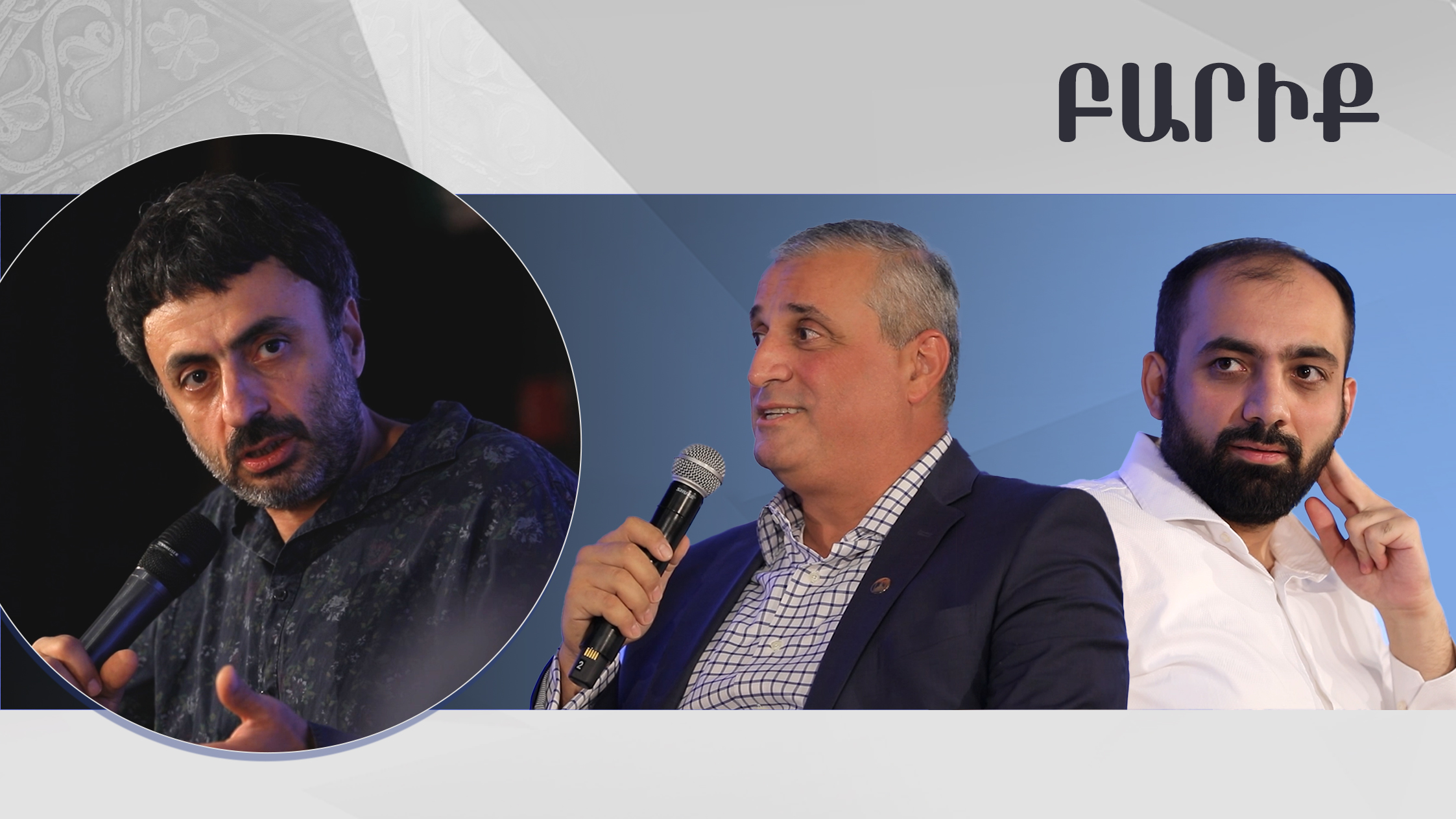
The Good, Identity and Values, Discussion 4
What is the good, and what is its place in our value hierarchy? The good as a spiritual, philosophical, cultural, and cognitive ideal. Classifications of the good: spiritual and material, common and individual, complete and partial, eternal and temporary. Virtue as an actualization of the good․ The struggle between good and evil. The nature of evil. Conscience and choice.
- Speakers: Aram Pakhchanyan, Artavazd Minasyan, Grigor Hovhannisyan
- Host: Fr. Mesrop Aramian
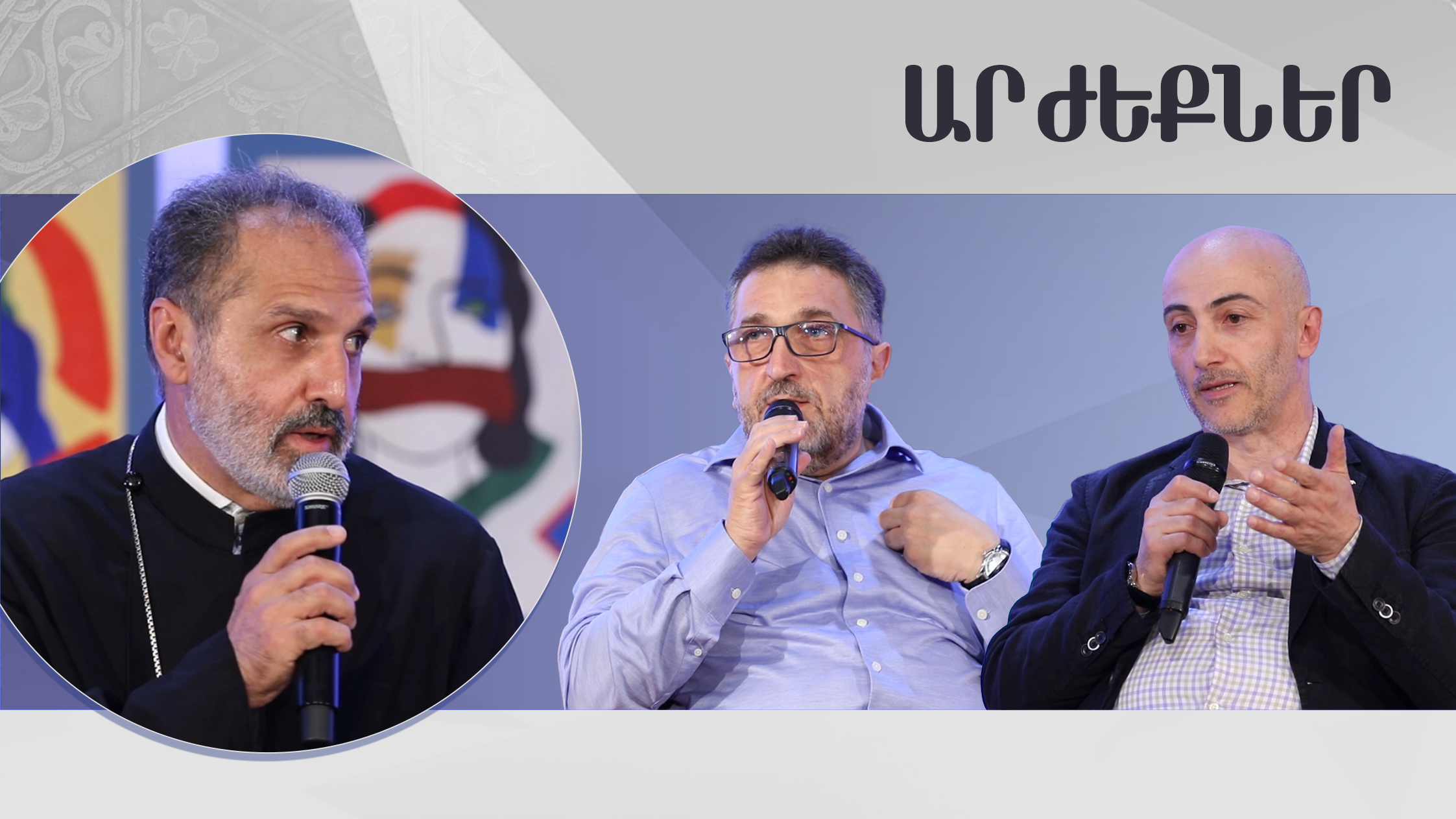
Values
What do individuals and societies value, and why do certain realities need to be valued? Values as a basis of knowledge. Correlation of values with identity, mission, and vision. The main classifications of values․ Are there fundamental values that are shared by all civilizations? The value base of education?
- Speakers: Ruben Harutyunyan, Arsen Galstyan
- Host: Fr. Mesrop Aramian
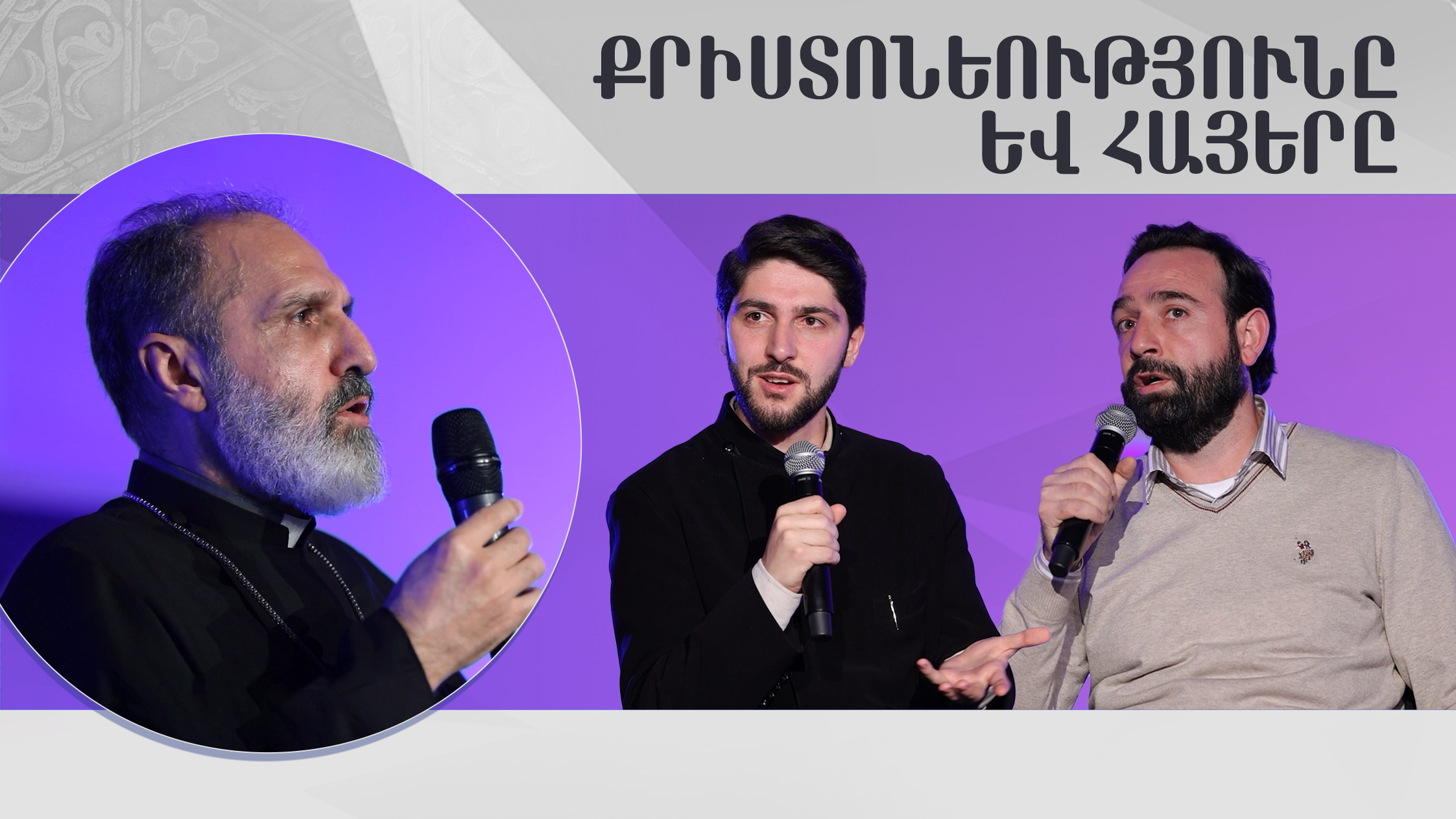
Christianity and Armenians
The role of Christianity in the life of Armenians. What is, and what is not, Christianity? Is Christianity a historical and cultural heritage or a power for constant renewal? The status and responsibility of the first Christian nation. Lack of public discussion and of reflection on spiritual issues. Why don't we want to delve into the spiritual?
- Speakers: Hakob Hakobyan, Stole Bearer Tovmas Arakelyan
- Host: Fr. Mesrop Aramian
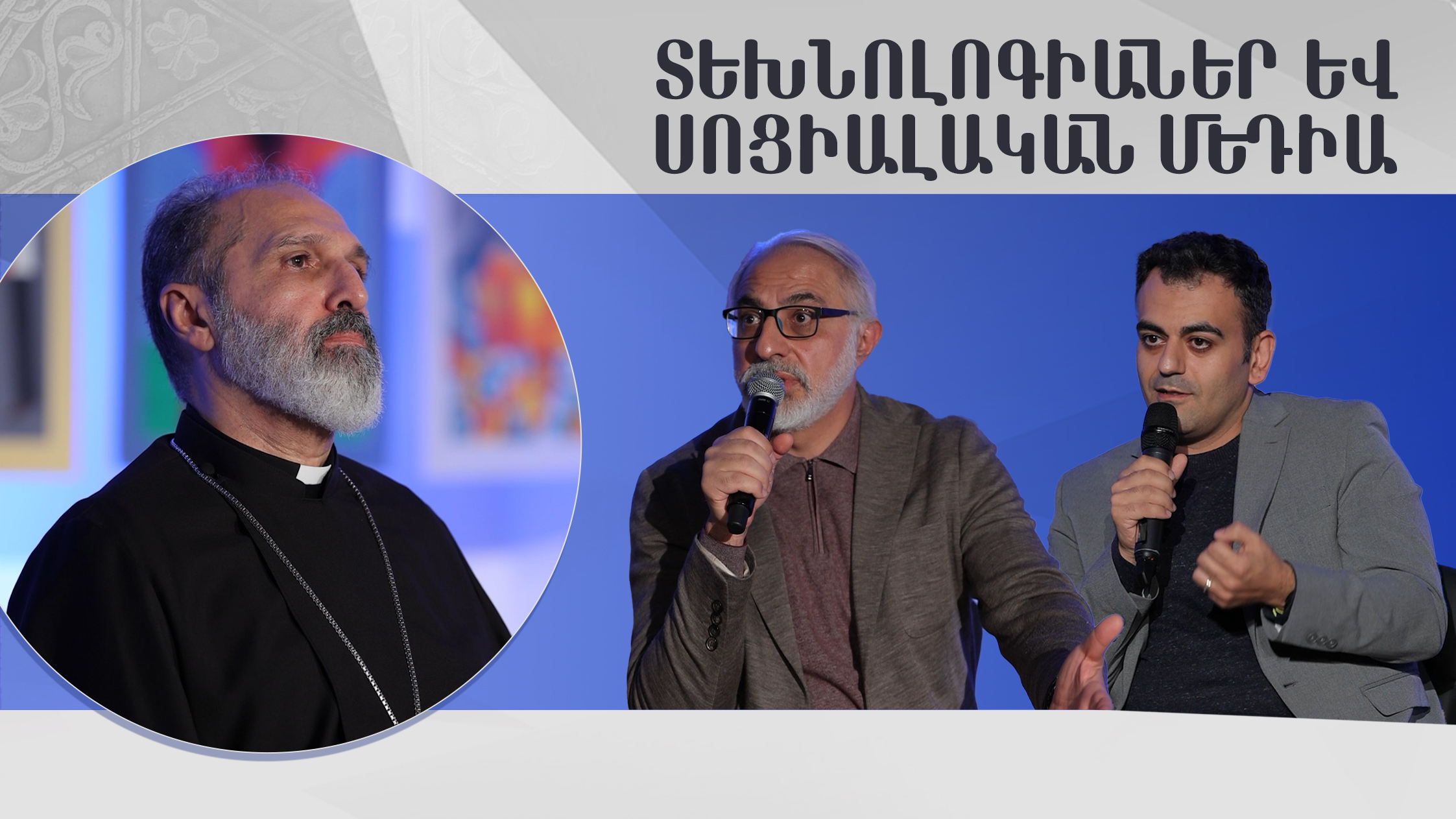
The Role of Technologies and Social Media in the Crisis of Meaning
Why do technologies and social media create addiction? Does our time serve us, or do we serve it? What impact do technologies have on education? How can we break free from digital dependency and rediscover ourselves in a reality filled with constant distractions? Are restrictions enough, or are more fundamental changes necessary? How we can gather ourselves and find our true selves.
- Speakers: Aram Mehrabyan, Narek Margaryan
- Host: Fr. Mesrop Aramyan